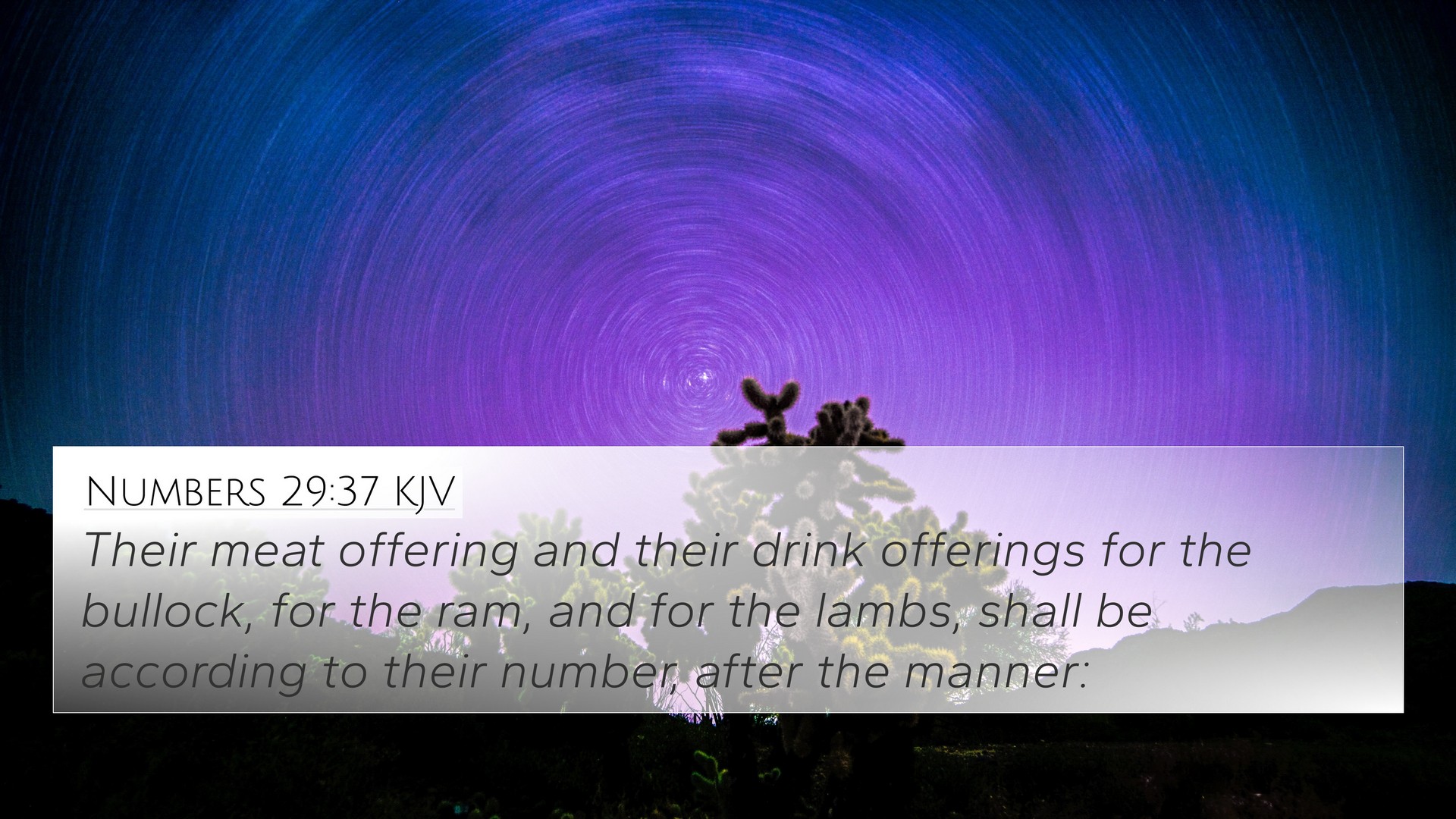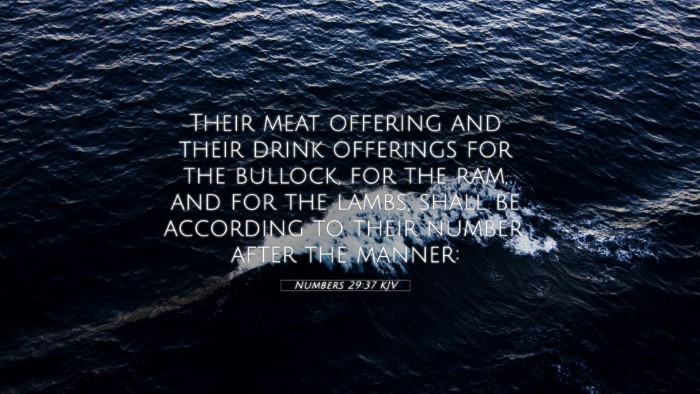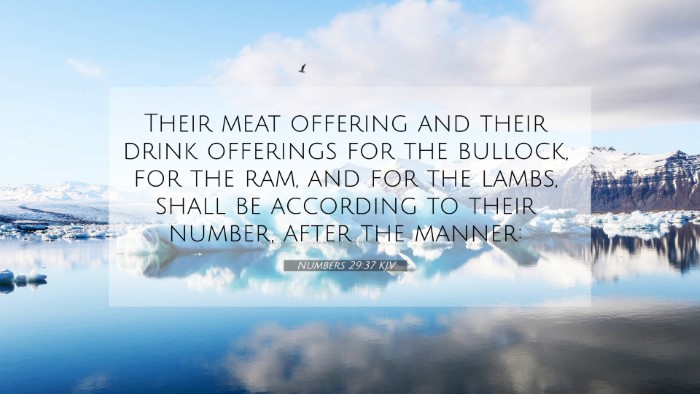Understanding Numbers 29:37
Verse: Numbers 29:37
This scripture depicts a portion of the myriad offerings required during the Feast of Tabernacles, specifically noting the daily offerings that were to be made as a dedication to God.
Combined Insights from Public Domain Commentaries
Matthew Henry's Commentary
Matthew Henry emphasizes the importance of the offerings in the context of worship and communion with God. Each offering was a symbol of gratitude, devotion, and recognition of God's sovereignty. The meticulous details about the offerings reflect God's desire for His people to engage in intentional acts of worship. Henry notes that such offerings were not merely rituals but expressed the heart's condition toward God, aligning with the principle of sincere worship.
Albert Barnes' Commentary
Albert Barnes focuses on the significance of the offerings as a continuation of God's covenant with the Israelites. He discusses how these offerings were part of the broader sacrificial system, reflecting obedience to God’s laws. According to Barnes, this verse not only underscores the daily commitment of the Israelites to God but also illustrates the anticipatory nature of these sacrifices. They pointed to a deeper spiritual truth, foreshadowing the ultimate sacrifice of Christ.
Adam Clarke's Commentary
Adam Clarke highlights the ceremonial aspect of the offerings described in this verse. Clarke notes that each type of offering had a specific purpose and that they served to maintain the covenantal relationship between God and the nation of Israel. He emphasizes the importance of the Feast of Tabernacles as a period of joy and reflection on God's provision, urging believers to recognize God’s hand in their lives. Clarke's insights remind us of the continuity between Old Testament practices and their fulfillment in the New Testament.
Key Themes and Connections
The offerings instructed in Numbers 29:37 relate to several key theological themes, namely:
- Worship: The act of giving offerings represents a fundamental aspect of worship in the Biblical context.
- Covenant Relationship: These rituals reinforce the covenant between God and Israel.
- Obedience: The Israelites were called to faithfully observe these commands as an expression of their loyalty to God.
- Thanksgiving: The offerings symbolize gratitude for God’s past provision and blessings.
- Anticipation: Many of these rituals serve as foreshadowings of Christ’s ultimate sacrifice.
Bible Cross References
This verse relates to several other scriptures that illuminate its meaning through cross-referencing:
- Leviticus 23:34-43: Details the Feast of Tabernacles, providing context for the sacrifices associated with it.
- Exodus 23:14-17: Discusses the three annual festivals during which these offerings were to be made.
- Deuteronomy 16:16-17: Further elaborates on the importance of appearing before God with offerings.
- Hebrews 9:24-28: Connects the Old Testament sacrifices to the work of Christ as the ultimate high priest.
- Matthew 5:23-24: Illustrates the significance of reconciling with God, akin to offering sacrifices.
- Romans 12:1: Calls believers to present their bodies as living sacrifices, connecting Old Testament practices to New Testament faith.
- Psalm 50:14: Encourages the offering of thanksgiving as a desirable sacrifice to God.
- Colossians 2:16-17: Discusses the shadow of the Old Testament practices and their fulfillment in Christ.
- John 1:29: Refers to Jesus as the Lamb of God, fulfilling the sacrificial system.
- 1 Peter 2:5: Describes believers as living stones and a holy priesthood, paralleling the call to offer spiritual sacrifices.
Conclusion
Numbers 29:37 is rich with meaning, illustrating God's desire for genuine worship and obedience from His people. By examining this verse in conjunction with related Scriptures, we uncover a web of connections that deepens our understanding of the themes of sacrifice, covenant, and ultimately, the redemption found in Christ. This verse serves as a reminder of the continuity between the Old and New Testaments, where the rituals of the past find their fulfillment in the present faith.


